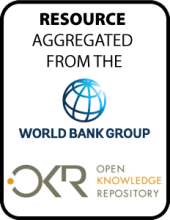Land Library
Welcome to the Land Portal Library. Explore our vast collection of open-access resources (over 74,000) including reports, journal articles, research papers, peer-reviewed publications, legal documents, videos and much more.
/ library resources
Showing items 1 through 9 of 427.Shortly after the Food and Agriculture Organization of the United Nations (FAO) was founded in 1945, the organization had started to support member countries addressing structural problems in agriculture with land fragmentation and small holding and farm sizes through the development of land cons
Land and forest tenure systems greatly influence a country’s ability to reduce deforestation and forest degradation. Clear and legitimate tenure rights over forests can provide an incentive to manage forests sustainably and simultaneously reduce deforestation and forest degradation.
From the outset, the development of agriculture has been strongly associated with women’s endeavour. In fact, women’s contribution to agriculture goes back to the origins of farming and the domestication of animals when the first human settlements were established more than 6 000 years ago.
This study draws on some case studies of land reforms in different South Asian countries.
Following a chaotic political decolonization, from 1975 to 2000, the Comoros failed to sustain the extension of private land ownership pursued since the beginning of the twentieth century and to implement land reform prepared with the assistance of the FAO and the UNDP but abandoned after the ass
The agricultural and food production sector plays a key role in fighting poverty and food insecurity in Moldova, but is facing critical challenges to modernize and integrate into the international market.
Agriculture has been essentially the backbone of economic growth for centuries. The sector has provided employment for the majority of the world population for generations, and has served as a powerful force in transforming of economies towards an industry- and service- based.
Uganda’s progress in reducing poverty from 1993 to 2006 is a remarkable story of success that has been well told. The narrative of Uganda’s continued, albeit it slightly slower, progress in reducing poverty since 2006 is less familiar.
The objective of this Poverty and Social
Impact Analysis (PSIA) is to assess the impact of systematic
registration on vulnerable individuals, in general, and
Roma, in particular. Specifically, this PSIA focuses on the









